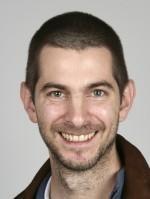Biography
I was born in Buenos Aires, Argentina in 1980 but grew up in London, UK. I studied Chemistry at Oxford, before going on to do a PhD at Imperial College with Prof. Charlotte Williams. I then spent a year at the University of Washington in Seattle working as a postdoc for Prof. Christine Luscombe. After this I returned to Imperial College to do a second postdoc with Prof. Iain McCulloch. I was awarded am Imperial College Junior Research Fellowship in 2012 before being appointed as a lecturer at University College London in 2013. In 2015 I was awarded an ERC starting grant and then in 2017 I was appointed as a lecturer joint between the physics and chemistry departments at the University of Cambridge.
Research
Research in my group involves the synthesis of novel conjugated materials for use in organic solar cells, light emitting diodes and transistors. We are particularly interested in synthesizing materials that help understand and utilise triplet excited states (eg. singlet fission, upconversion, reverse intersystem crossing) due to their unique and fascinating properties. The virtually infinite tunability of conjugated polymers means that they can be applied to an immense number of applications.
Traditionally, much of the development of novel materials has come from a “top-down” approach where a particular research group focuses on one/several types of application. My aim as a scientist is to begin the research process from the “bottom up”. I believe that by developing a true understanding of the fundamental properties of conjugated materials, simultaneous advancement across all areas of conjugated polymer research and its relevant applications.
There are a few key properties of conjugated polymers which are important across ALL applications, which if they could be controlled would offer rapid advances across all fields of research. For instance, it could be argued that in applications where there is interaction of light and matter, the three most important of these properties are: excited state energy, lifetime and diffusion length. My aim is to synthesize novel systems which allow us to firstly measure, and then control these basic properties which are still not understood.
By developing a true understanding of how structure (both primary chemical, and secondary morphological) affects the fundamental properties it will be possible to make rapid advances across all fields. In particular, using this approach I believe it is possible to make great advances in areas which I believe represent some key challenges for modern science (eg clean energy generation and storage).


